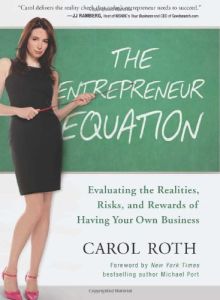Consultant and author Carol Roth takes a straight-up, no-nonsense tone in this easy-to-read guide containing useful, if somewhat obvious, advice. For example, individuals who can’t manage their personal finances shouldn’t try to manage a business. Or future entrepreneurs think that if they run their own companies, they’ll have more free time, though, in reality, they will have less. While Roth writes in an engaging style and provides useful self-analysis questions in each chapter, her book needs more examples of real-world successful and failed entrepreneurs. Future entrepreneurs could be deterred by Roth’s fairly negative tone, although she might be doing them a big favor in that sense. getAbstract recommends this helpful if limited overview to potential future entrepreneurs who must evaluate whether they’re cut out for such a path.
Defining Entrepreneurship
Many businesspeople pursue entrepreneurship without understanding what it means. Writer James Truslow Adams coined the term “entrepreneurship” in 1931. It evokes a prosperous life won through hard work. But commerce has changed drastically since the 1930s, as societies have moved from practicing agriculture and manufacturing to providing goods and services.
An entrepreneur is “someone who starts or runs a business, putting his or her resources at risk.” A potential entrepreneur must calculate this equation: Do the potential benefits and payoffs of having your own company balance the risks and the work? This is the internal balance you must strike when you decide whether you want to be an entrepreneur.
Becoming an entrepreneur is risky because of all the time, effort and money you invest before you know if your enterprise will succeed. Being an entrepreneur may entail starting a new firm, purchasing an existing company or buying into a franchise. You run the operation, which provides goods or services in exchange for payment without relying on another person or group. For example, if the CEO of Walmart leaves, Walmart still functions. ...
Carol Roth, a business consultant and blogger, has appeared on Fox News, MSNBC and the Fox Business Network.

















Comment on this summary